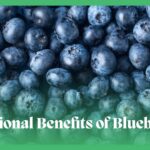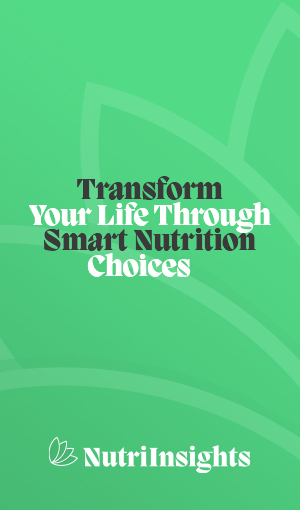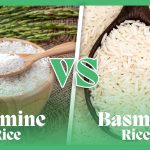The magnificent gift from the summer is in the form of an Apricot. These big orange orbs radiate sunlight from the inside out, and their tangy-sweet flavor reflects the essence of perfection ripened by trees.
However, apricots are more than simply tasty treats; they are antioxidant powerhouses that shield cells, encourage healthy skin, and fend against illnesses. The apricot is one example of how some of nature’s most magnificent gifts can come in modest packaging.
What are Apricots?
Apricots belong to the genus Prunus armeniaca. Armenian plums are another name for apricots as they are the national fruit of Armenia and are mostly found in Eastern Europe and some regions of Western Asia. The world’s major producers of apricots are Turkey and Iran and are extremely popular in Middle Eastern nations.
They are golden, round, and resemble a peach in size, yet they have the same tarte flavor as purple plums. The most widely planted species in the Rosaceae family are apricots, which are known for their delicious fruit and lovely white blooms.
Plums, cherries, almonds, and peaches are all closely related to apricots. Apricots can be preserved by canning or drying and can be eaten either raw or cooked. The fruit is frequently used to flavor liqueurs and is commonly used to produce jam.
Forms of apricot:
Although apricots are most frequently obtained fresh in late spring to early summer, when they are at their optimum, these adaptable stone fruits can also be tasted dried. Every preparation has a distinct flavor, texture, and nutritional makeup.
Fresh Apricots:
Fresh apricot apricots, plucked right from the tree, are a pleasant delight for summertime. When fresh apricots are allowed to fully mature on the branch, they develop their distinctive orange hue and fragrant perfume, which is when they are at their best.
Dried Apricots:
Dried apricots are perhaps the most adaptable of the several forms that apricots may take. The liquid in the fresh apricot is extracted by a dehydration process, leaving behind a chewy, highly flavorful, leathery, wrinkled texture that is enjoyable to chew on. The natural sugars in the fruits concentrate as they dry, giving dried apricots a deliciously tangy and sweet flavor.
Dried apricots are a great source of potassium, fiber, antioxidants, and a variety of other nutrients. They have been demonstrated to enhance digestion and reduce cholesterol. The flavor of dried apricots is strong, they have few calories, and no fat. Dried apricots may be enjoyed all year round because of their extended shelf life.
Nutritional composition:
Nutritional value per 100 g (3.5 oz)
| Apricot fresh | Apricot dried | |
|---|---|---|
| Water | 86 g | 31 g |
| Energy | 201 kJ (48kcal) | 1,010 kJ (240 kcal) |
| Carbohydrates | 11 g | 63 g |
| Sugars | 9 g | 53 g |
| Dietary fiber | 2 g | 7 g |
| Fat | 0.4 g | 0.5 g |
| Protein | 1.4 g | 4 g |
| Vitamin A | 96 μg | 180 μg |
| Beta-Carotene | 1090 μg | 2160 μg |
| Thiamine (B1) | 0.03 mg | 0.015 mg |
| Riboflavin (B2) | 0.04 mg | 0.074 mg |
| Niacin (B3) | 0.6 mg | 2.589 mg |
| Pantothenic acid (B5) | 0.24 mg | 0.516 mg |
| Vitamin B6 | 0.054 mg | 0.143 mg |
| Folate (B9) | 9 μg | 10 μg |
| Vitamin C | 10 mg | 1 mg |
| Vitamin E | 0.89 mg | 4.33 mg |
| Vitamin K | 3.3 μg | 3.1 μg |
| Minerals | ||
| Calcium | 13 mg | 55 mg |
| Iron | 0.4 mg | 2.66 mg |
| Magnesium | 10 mg | 32 mg |
| Manganese | 0.077 mg | 0.235 mg |
| Phosphorus | 23 mg | 71 mg |
| Potassium | 259 mg | 1160 mg |
| Sodium | 1 mg | 10 mg |
| Zinc | 0.2 mg | 0.29mg |
| lutein zeaxanthin | 89 μg | 0 |
Macronutrients:
Fresh apricots, in a standard portion of 100 g (3.5 oz), are a fruit that is high in nutrients yet low in calories. They include 11g carbohydrates, 1.4 g protein, less than 1g fat, and 86g water and provide 48 calories. On the other hand, dried apricots render 240 calories, 63g of carbohydrates, 4g of protein, less than 1g of fat, and 31g of water.
Micronutrients:
Fresh apricots are an excellent source of carotenoids such as beta-carotene, lutein, and zeaxanthin, making them a great source of vitamins. Additionally, they are abundant in vitamin C and B vitamins, including folate, thiamine, riboflavin, niacin, and pantothenic acid. Among minerals, they have lesser quantities of calcium, iron, and zinc along with manganese, magnesium, phosphorus, and potassium.
They also include a variety of polyphenols such as chlorogenic acid and catechins. Compounds that contribute to flavor and scent include lactones, organic acids, terpenes, sucrose, and aldehydes.
On the other hand, dried apricots have an upper hand in their beta-carotene and vitamin A content compared to their fresh counterparts. Additionally, they provide vitamin E and B vitamins such as pantothenic acid, B6, and niacin. Apricots are a great source of minerals; they include 39% DV of potassium, 15% DV of iron, 10% DV of manganese, and significant levels of calcium, magnesium, and phosphorus.
Role in human nutrition:
Apricots are rich in nutrients and offer several health advantages. Although apricots are a healthful fruit, some experts classify them as a superfood. The advantages of apricot for health are as follows:
Aid eye wellness:
Apricots are rich in many substances, such as vitamins A and E that are critical for eye health. One important factor in avoiding night blindness is vitamin A. Carotenoids found in apricots include zeaxanthin and lutein which are located in the lenses and retinas of your eyes and protect against oxidative stress.
Good for skin health:
Consuming apricots might be good for your skin. Because apricots are naturally rich in antioxidants like vitamins C and E, they may help protect your skin from the damaging effects of the sun, pollution, and cigarette smoking and reduce the likelihood of wrinkles and sunburns. Beta carotenes in apricots may offer sunburn protection.
Good for digestive health:
Apricots could be good for your tummy. Soluble fiber, which is critical for preserving appropriate blood sugar and cholesterol levels, is especially abundant in apricots, both in soluble and insoluble fiber forms. Fiber supports the growth of beneficial gut flora and may improve digestive health.
Good source of potassium:
Potassium, also an electrolyte, is abundant in apricots. Potassium supports fluid homeostasis, muscular contractions, and nerve signaling. Consuming foods high in potassium, like apricots, can lower your risk of stroke and help avoid high blood pressure.
Protect the liver:
Apricots may protect the liver from the oxidative damage that alcohol use causes. Their naturally high antioxidant content may help avoid liver damage.
Health benefits of Apricot kernels:
The tiny but potent apricot kernel seed has been connected to a potential cancer cure. It might be located in the middle of an apricot stone. Additionally, they are a great source of good fats that reduce “bad” cholesterol. Omega-3 and omega-6 necessary fatty acids are present in the kernels. Along with many other advantages, they aid in the prevention of heart disease and enhance mental wellness.
Prevention of chronic illnesses:
Beta-carotene, lutein, zeaxanthin, and antioxidants vitamins A, C, and E are found in apricots. Antioxidants protect your cells from the harm that free radicals may do, they neutralize free radicals, hence preventing oxidative stress. These antioxidants aid in the prevention of inflammatory illnesses such as rheumatoid arthritis and chronic diseases like cancer that are brought on by oxidative stress in the body.
Heart health:
Lycopene, chlorogenic acid, and beta-carotene are among the phenolic compounds found in apricots that may aid in the oxidation of low-density lipoprotein (LDL), one of the main causes of heart issues. They may also enhance the body’s antioxidative state. Moreover, apricots are a great source of fiber. It is well-recognized that soluble dietary fiber effectively lowers LDL cholesterol or bad cholesterol.
As an anti-infection:
The Japanese form of apricot may be beneficial in preventing H. pylori from colonizing the digestive tract, which may help prevent gastritis. Gram-positive bacteria may be highly susceptible to the antibacterial effects of apricot ethanolic extract. Additionally, it could have antibacterial properties against microorganisms like Bacillus subtilis and Staphylococcus aureus.
In traditional Chinese medicine:
In Chinese medicine, apricots are believed to aid in the processes of detoxifying, quenching thirst, and replenishing bodily fluids. Chinese medicine suggests that its kernels may be useful for strengthening the respiratory system and controlling cough.
Apricot kernel oil:
The primary component of apricot kernel oil, which is abundant, is fatty acids, especially unsaturated fatty acids. High concentrations of polyphenols, triterpenoids, phytosterols, vitamin E active components, and carotenoids are also present in this oil. Additionally, apricot kernels are an excellent source of proteins, peptides, and essential oils.
Good for preventing anemia:
Apricots are rich in iron and copper content that aid in hemoglobin production treating anemia. Apricots are a fantastic tool for maintaining optimal bodily function and increasing metabolism since they include both of these minerals.
Soothes asthma:
The essential oils of apricot have some expectorant and stimulating properties. By reducing pressure and stress on the lungs and respiratory system, it can help avoid bronchitis, TB, and asthma episodes.
Bone health:
All the elements required for the formation of bones, such as calcium, phosphorus, manganese, iron, and copper, are present in large proportions in apricots. Low bone density and strength caused by osteoporosis, a condition of the bones, are caused by a lack of calcium. Potassium regulates the body’s distribution, excretion, and absorption of calcium. As a result, eating apricots promotes bone health and guards against issues relating to bones.
Keeps Electrolyte balance:
Minerals like potassium and sodium found in apricots are crucial for preserving electrolyte balance in our bodies. Additionally, it keeps fluid levels stable, necessary for muscular contraction. Hence, apricots, with their high potassium and sodium content, aid in preserving electrolyte levels and promoting healthy bodily functions.
Side effects:
Consuming apricot fruit in moderation has no negative effects on health. On the other hand, consuming too many raw apricot kernels (seed) might be dangerous. A chemical found in apricot kernels is known as amygdalin which turn into cyanide once ingested. Nausea, headache, thirst, sluggishness, lethargy, anxiety, fever, nervousness, and hypotension can all result from cyanide poisoning. In severe circumstances, it may be fatal. As such, it is essential to use caution when swallowing apricot kernels.
Including apricots in your diet:
Small and usually safe, fresh apricots are best enjoyed with lean protein for diabetics to help control blood sugar levels. Excessive intake, however, can be beneficial but might provide a challenge. More minerals and fiber are available from dried apricots, although they could also have added sugar. Both kinds are delicious, but watch out for portion size and extra sweeteners in the dried variants.
In conclusion, fresh, dried, or in the form of kernels, apricots are nutrient-dense superfruits. They have vibrant tastes and colors and are quite healthy. These super antioxidant packets provide many health benefits. Honor the versatile apricot in all of its wonderful forms.







